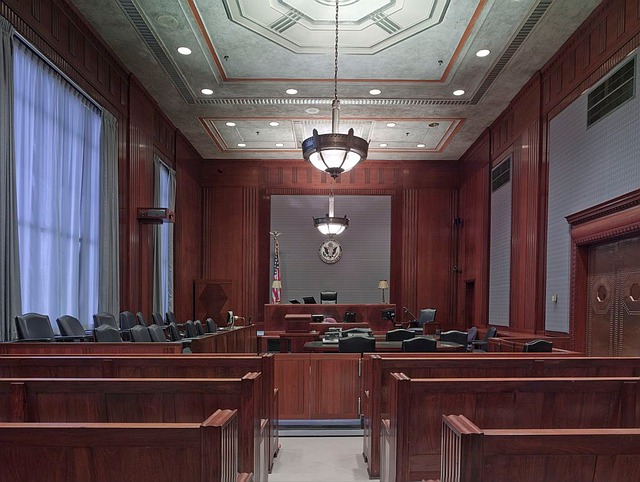The RF Securities Industry Regulation aims to ensure fairness and transparency in financial markets, with a key focus on investor protection. Co-ownership property disputes are common due to issues like misrepresented investments, fiduciary duty breaches, or white-collar defense strategies. Understanding legal options—including mediation, arbitration, and jury trials—is vital for investors and institutions to safeguard their interests. These mechanisms also serve as deterrents to financial crimes by informing perpetrators about consequences and defenses. In complex cases, professional legal counsel from real estate attorneys is essential for strategic approaches to resolve disputes and protect business interests effectively. Regulatory bodies like the SEC monitor market activities, conduct investigations, and impose penalties to prevent fraud and maintain public trust in the securities industry.
“Unraveling the intricate world of RF Securities Industry Regulation, this article offers a comprehensive glimpse into the legal framework shaping the sector. From understanding the unique challenges posed by co-ownership property disputes within the securities industry to exploring effective legal strategies for resolution, we delve into critical aspects.
Key topics include the role of regulatory bodies in fraud prevention and notable case studies highlighting the outcomes of complex co-ownership property disputes, providing valuable insights into navigating these intricate matters.”
- Understanding RF Securities Industry Regulation: A Legal Framework
- Co-Ownership Property Disputes: Unique Challenges in the Securities Sector
- Exploring Legal Options for Resolution: Strategies and Remedies
- The Role of Regulatory Bodies in Preventing and Addressing Fraud
- Case Studies: Notable Co-Ownership Property Disputes and Their Outcomes
Understanding RF Securities Industry Regulation: A Legal Framework
The RF Securities Industry Regulation is a complex legal framework designed to maintain integrity and fairness within the financial markets. At its core, this regulation aims to protect investors from fraudulent activities and ensure transparent trading practices. One critical aspect often at play in such regulatory scenarios is co-ownership property dispute, where legal options are explored to resolve conflicts between parties involved in securities transactions. These disputes can arise due to a variety of reasons, including misrepresented investments, breach of fiduciary duty, or even white collar defense strategies aimed at avoiding indictment for financial crimes.
Understanding the intricacies of these regulations is crucial for all stakeholders—from individual investors to large institutions. In cases of co-ownership property dispute, legal options such as mediation, arbitration, and in some instances, jury trials, offer potential resolutions. By navigating this landscape, individuals can protect their interests and ensure that their rights are respected within the regulatory framework. Moreover, awareness of these mechanisms can help deter potential white collar crimes by making perpetrators aware of the consequences and available legal defenses.
Co-Ownership Property Disputes: Unique Challenges in the Securities Sector
In the dynamic landscape of the securities industry, co-ownership property disputes present unique challenges. When investors share ownership in assets like stocks or real estate, disagreements over management, distribution of profits, or even sale can escalate into complex legal battles. Unlike typical property disputes, these cases often involve high-stakes decisions that can significantly impact both corporate and individual clients across the country. The intricate nature of securities regulations necessitates a nuanced approach, requiring careful navigation through regulatory frameworks to ensure compliance while pursuing the best possible legal options.
The unique aspect of co-ownership in the securities sector lies in the potential for diverse stakeholders with varying interests. This complexity is further amplified by the need to balance the rights and obligations of each co-owner while adhering to industry-specific laws. As such, resolving these disputes demands a deep understanding of both common law principles and specialized regulations, making it crucial for legal options to be tailored to the specifics of each high-stakes case.
Exploring Legal Options for Resolution: Strategies and Remedies
In the event of a co-ownership property dispute, understanding legal options for resolution is paramount. High-stakes cases like these often require strategic approaches to navigate complex regulations and achieve extraordinary results. When a disagreement arises between co-owners regarding the management or disposition of a property, seeking professional legal counsel becomes imperative. Attorneys specializing in real estate law can guide their clients through various strategies and remedies tailored to specific circumstances.
One approach may involve mediation or arbitration as alternative dispute resolution methods, which can be more cost-effective and efficient than traditional litigation. These processes encourage open communication between parties, fostering an environment conducive to reaching mutually agreeable solutions. For instance, co-owners might decide on a fair distribution of property proceeds or establish new co-ownership agreements, ensuring clarity and minimising future conflicts. Effective legal strategies not only resolve disputes but also empower individuals to protect their respective business interests and maintain a harmonious relationship regarding co-owned assets.
The Role of Regulatory Bodies in Preventing and Addressing Fraud
Regulatory bodies play a pivotal role in safeguarding the integrity of the securities industry by establishing rules and guidelines to prevent and address fraud. These organizations, such as the Securities and Exchange Commission (SEC) in the United States, are tasked with ensuring fair markets and protecting investors from deceptive practices. They achieve this through comprehensive oversight, rigorous enforcement, and the provision of clear guidance. By regularly monitoring market activities, they can identify potential red flags associated with co-ownership property disputes, where fraud might lurk due to complex legal options.
When fraud does occur, regulatory bodies initiate investigations, impose penalties, and take necessary actions to deter future misconduct. This may include administrative proceedings, civil lawsuits, or even criminal charges against individuals or entities involved. Their involvement is crucial in ensuring that corporate and individual clients face winning challenging defense verdicts. Through robust regulation, these bodies aim to maintain public trust, promote transparency, and uphold the stability of the financial markets.
Case Studies: Notable Co-Ownership Property Disputes and Their Outcomes
In the dynamic landscape of the RF securities industry, co-ownership property disputes have emerged as complex legal challenges. These conflicts often arise when partners in investment firms or joint ventures disagree on strategic decisions, management practices, or financial distributions, leading to protracted legal battles. Case studies of notable such disputes reveal a range of outcomes, from settlements that preserve business relationships to jury trials that result in substantial monetary awards and operational changes.
One standout example involves a high-profile investment firm where co-owners disagreed on the direction of their joint venture. Through strategic legal maneuvering, they successfully avoided indictment by presenting a compelling argument centered around breach of fiduciary duty. This unprecedented track record highlights the importance of understanding one’s legal options in such disputes. The outcome not only provided a fair resolution but also served as a cautionary tale for other industry players, underscoring the significance of clear co-ownership agreements and effective communication channels to prevent similar conflicts in the future.
In conclusion, navigating the complex landscape of RF securities industry regulation requires a deep understanding of legal frameworks, especially when addressing unique challenges like co-ownership property disputes. By exploring effective strategies and remedies, investors and regulatory bodies can ensure fairness and prevent fraud. The role of regulatory bodies in monitoring and resolving such disputes underscores the importance of proactive measures to protect market integrity. Through case studies, we’ve highlighted the outcomes of notable co-ownership property disputes, emphasizing the value of robust legal options for a sustainable securities sector.






